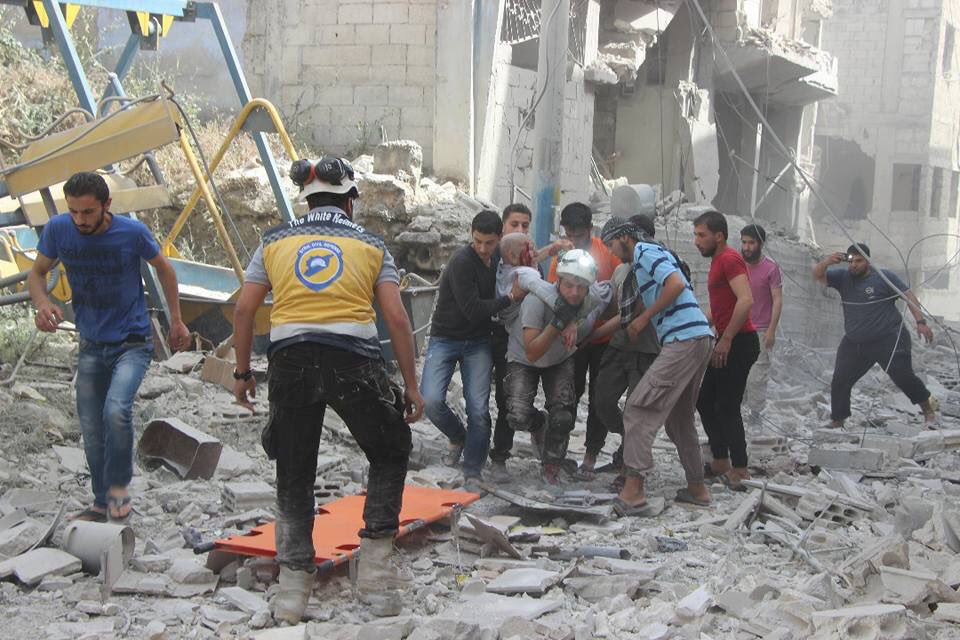More than 700,000 people could be displaced by a pro-Assad offensive on Idlib Province in northwest Syria, a group of health agencies has warned.
The monthly Health Cluster Bulletin, published by aid agencies led by the World Health Organization, said:
Increased hostilities are expected in the North West in the coming period, to result in displacements of 250,000 to over 700,000 people in Idlib and surrounding areas. This will cause an increased need for humanitarian assistance to the new vulnerable and host communities, especially emergency health services.
About 2.5 million people, many displaced from other areas of Syria, live in Idlib. The province is the last major opposition-held area, following the pro-Assad capture of opposition territory in the south in the last two months.
Further displacement would add to the flight of more than 12 million people, over half of Syria’s population before the uprising began in March 2011. More than 6.6 million are registered refugees, while more than 5 million have been displaced inside the country.
The Bulletin said 184,000 people were displaced by the June-July offensive against Daraa and Quneitra Provinces in the south. Other UN estimates have been as high as 320,000 people, although some have now returned to their homes.
The Assad regime has declared that it will regain all of Idlib Province, despite a “de-escalation zone” declared by Russia, Iran, and Turkey last year.
Moscow has broken other pledges of de-escalation zones to enable pro-Assad advances, including in East Ghouta near Damascus this spring and in Daraa and Quneitra. A more significant deterrent to the regime has been the Turkish presence alongside the opposition in northwest Syria, following Ankara’s military intervention against both the Islamic State and Kurdish militia since August 2016.
Turkey has set up a ring of 11 observation posts around Idlib and parts of northern Hama and western Aleppo Provinces. Before the establishment of the ring, a pro-Assad assault enabled by Russian bombing took part of southeast Idlib in January.
In recent weeks, Russian and regime forces have struck around the edge of the ring, but have not carried out a significant attack inside Idlib.
The UN’s head of humanitarian operations in Syria, Jan Egeland, has repeatedly warned of a “fresh humanitarian disaster”, including in remarks in late April after the fall of East Ghouta to intense pro-Assad ground assaults, bombing, and chemical attacks.
UN regional humanitarian coordinator Panos Moumtzis said in June that Idlib’s entire population of 2.5 million could be displaced and move towards the Turkish border if an offensive is launched.

